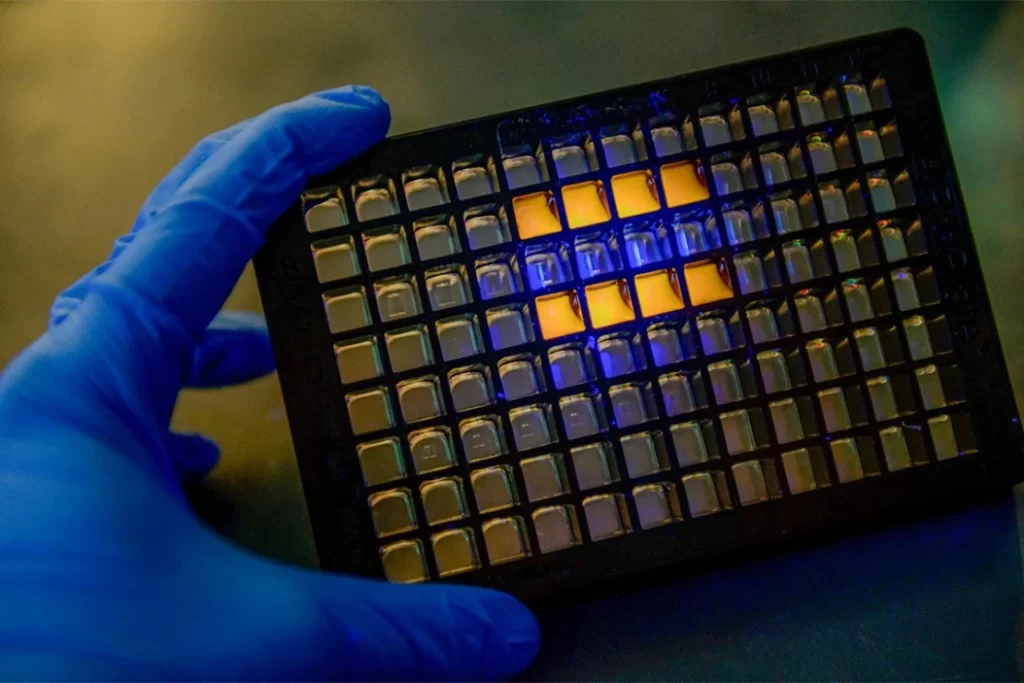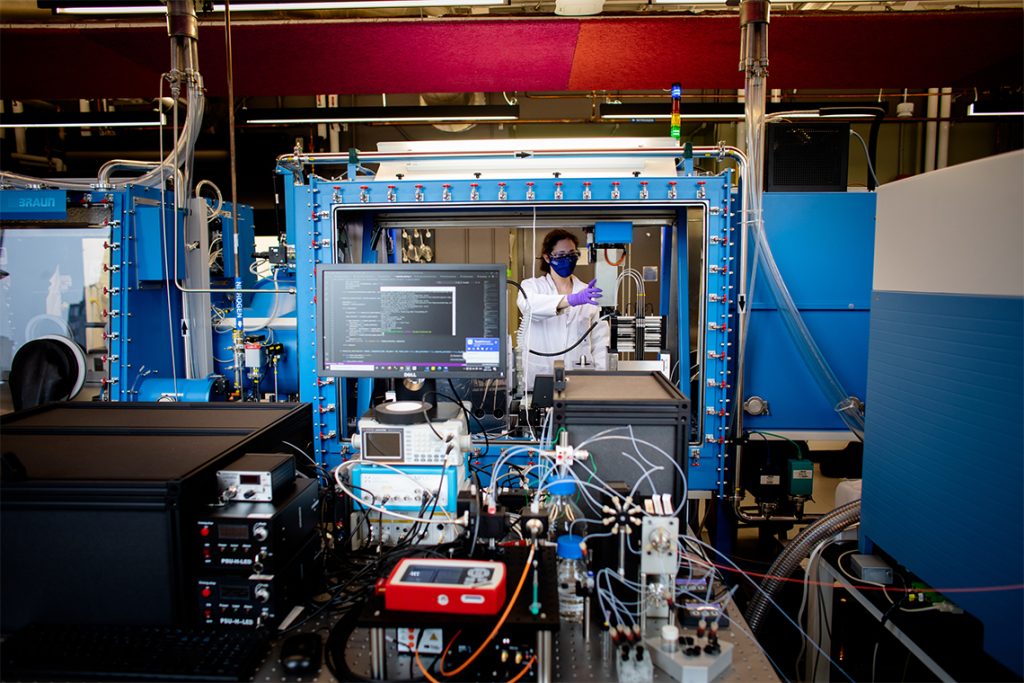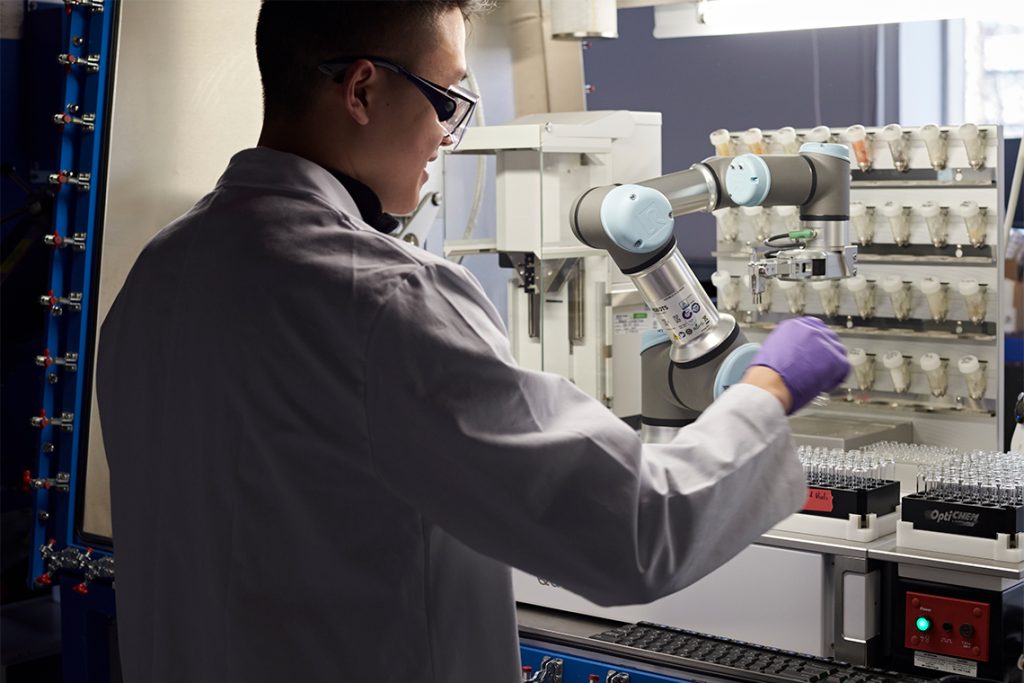CFREF

U of T 'self-driving lab' to focus on next-gen human tissue models
The Self-Driving Laboratory for Human Organ Mimicry is the latest self-driving lab to spring from a historic $200-million grant from the Canada First Research Excellence Fund to the Acceleration Consortium

U of T receives $200-million grant to support Acceleration Consortium's ‘self-driving labs’ research
The University of Toronto has been awarded a $200-million grant from the Canada First Research Excellence Fund (CFREF) to revolutionize the speed and impact of scientific discovery through its Acceleration Consortium. The funding – the largest federal research grant ever awarded to a Canadian university – will support the consortium’s work on “self-driving labs” that combine artificial intelligence, robotics and advanced computing to discover new materials and molecules in a fraction of the usual time and cost.

Experts say $200-million grant awarded to U of T will drive ‘big science’ via the Acceleration Consortium
The Acceleration Consortium will use the funding to commercialize ethically designed technologies and materials to benefit society and train today’s scientists with the skills they need to advance the emerging field of accelerated materials discovery. It will also examine critical issues regarding the application of the technology, including from environmental and Indigenous perspectives.
